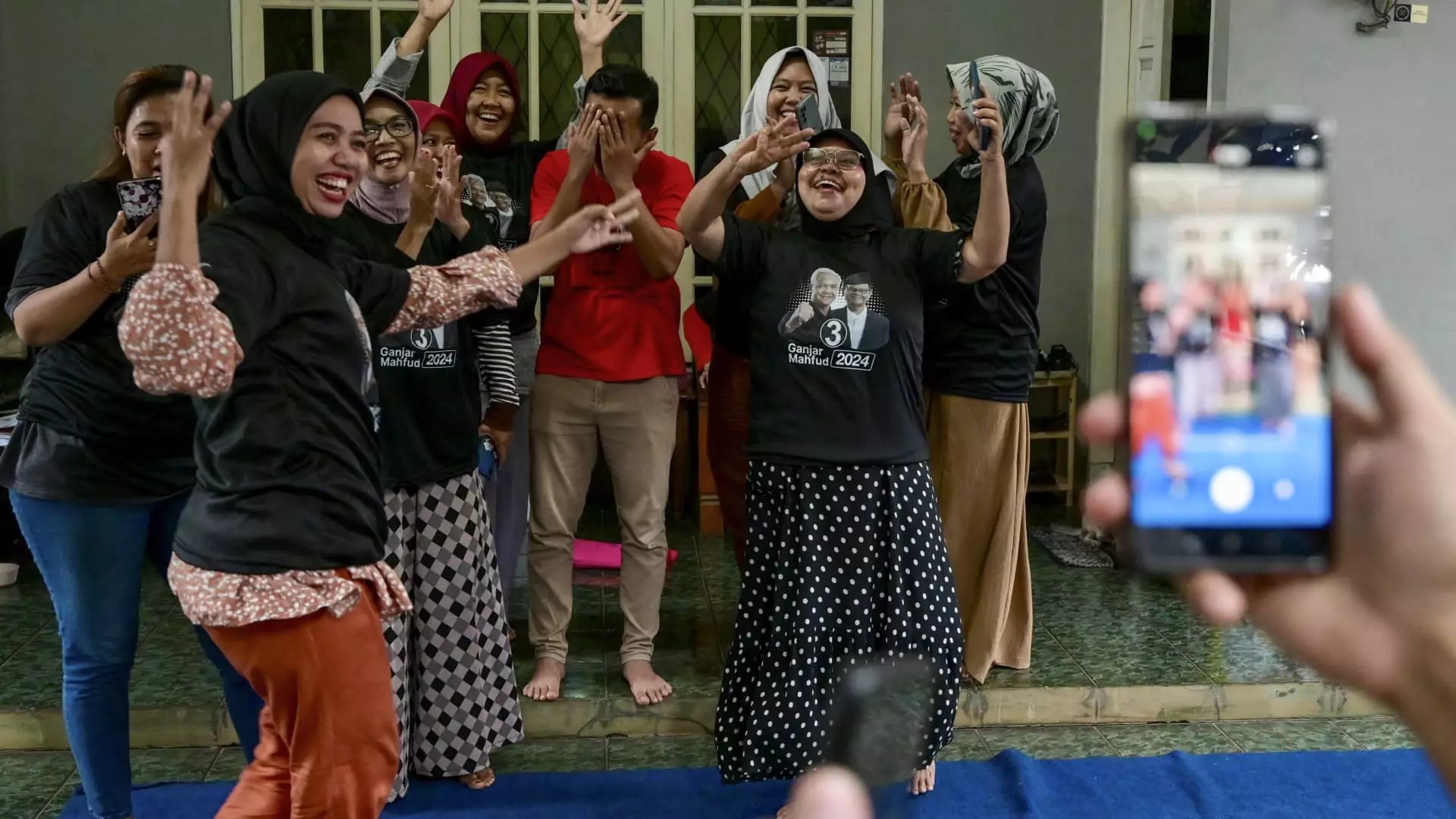Indonesia’s presidential election is quickly approaching, and candidates are utilizing every possible platform to connect with voters, especially the younger generation. With millennials and Gen Z voters accounting for 56.5% of the electorate, social media has become a crucial battleground for politicians. While Instagram played a significant role in the previous election, TikTok has emerged as the primary platform for engaging Indonesian voters. As the second-largest market for TikTok with 125 million monthly active users, Indonesia’s political candidates recognize the immense potential of the platform for disseminating campaign information and connecting with voters.
TikTok: The New Political Battleground
All three presidential candidates have harnessed TikTok’s popularity to reach out to the Indonesian youth. Defense Minister Prabowo Subianto, the frontrunner in the polls, has shifted his campaign strategy to embrace a more “gemoy” or cute image. This softer approach is a departure from his previous macho persona, which resonated with older voters. Surprisingly, Prabowo’s vulnerability and sensitivity have garnered significant attention on TikTok, with one campaign post receiving 49 million views. Young women supporters even created videos expressing solidarity with Prabowo, deeming him a victim of bias.
Former governor of Jakarta, Anies Baswedan, has found success with live broadcasts on TikTok, known locally as “Desak Anies” or “Interrogate Anies.” The candidate, who is running neck-and-neck with Ganjar Pranowo, actively encourages followers to send him questions on various topics, from political programs to first date advice. Despite past associations with conservative Islam, Anies has surprisingly garnered popularity among K-pop fans, primarily young women. Anies’ campaign has even received support from a 22-year-old female student who incorporates Korean hangul captions when promoting his campaign. Much of the content generated for Anies’ campaign is sourced from TikTok, further solidifying its significance in the presidential race.
Former governor of Central Java, Ganjar Pranowo, has opted for a more grassroots and authentic campaign approach on TikTok. While his campaign features gimmicks like “Top Gun”-style jackets and penguin symbols, the emphasis lies on showcasing his humble roots and connecting with voters on a personal level. Ganjar’s campaign team acknowledges the unique characteristics of TikTok, which values unpolished and authentic videos. They believe that Instagram, in contrast, prioritizes more polished content. Older politicians like Ganjar’s running mate, Mahfud MD, have had to adjust and learn TikTok’s dynamics quickly to engage with the younger demographic effectively.
The Power and Risks of TikTok
TikTok’s power as a political platform cannot be denied, but concerns regarding its potential misuse and dissemination of misinformation have also risen. In past Indonesian elections, social media platforms such as YouTube and Facebook were notorious for spreading misinformation and propaganda. TikTok aims to prevent the spread of false information by prohibiting paid political advertising and fundraising by politicians and political parties. The platform has also partnered with government bodies, local NGOs, and news agency Agence-France Presse to combat misinformation effectively.
However, TikTok is still susceptible to the circulation of edited clips or footage shared out of context, often accompanied by misleading or false captions. Examples include manipulated clips creating the illusion that crowds at Prabowo rallies were cheering on his opponents when they were actually his supporters. Other instances involve claims that Anies had converted to Christianity or a leading journalist endorsing Prabowo. Mafindo, an NGO working with TikTok, reported that 7.4% of the hoaxes they encountered between January and November 2021 were on TikTok, indicating a growing presence of misinformation on the platform.
As the Indonesian presidential election draws nearer, candidates are leveraging the power of social media, especially TikTok, to connect with the country’s young voters. The popularity of TikTok among Indonesian millennials and Gen Z makes it a vital platform for engaging and mobilizing supporters. Candidates have adapted their campaign strategies to fit the TikTok audience, displaying vulnerability, addressing personal questions, and showcasing their authenticity. However, the rise of TikTok as a political battleground also comes with risks, particularly in the form of misinformation. TikTok, along with government bodies and NGOs, is working tirelessly to combat falsehoods and ensure an informed electorate as Indonesia prepares to choose its next leader.


Leave a Reply